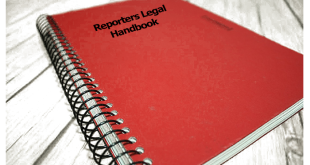Under federal law a participant in a telephone conversation can tape record it without the knowledge of the other person as long as the purpose is not criminal or tortuous. 18 U.S.C. §2511(2)(d).
Under Nevada law, however, it appears that a participant in a private conversation may not record that conversation without the knowledge or permission of the other party. NRS §200.620. Violation of that statute is a felony. NRS §200.690.
Accordingly, if you wish to tape record a conversation over the telephone or in a private interview, it is best to begin the conversation by asking the subject of the interview if they mind being taped. Then, only after you receive consent, turn on the tape recorder and make a general statement such as:
This is an interview with John Smith. The interview is being tape recorded. I spoke with Mr. Smith before turning on this tape recorder and informed him I wished to tape this interview. He is aware it is being taped and has consented to the use of that recording device.
Once you have made that statement make sure the subject orally confirms his or her willingness to permit the taping. Once the consent has been given and the interview has begun, if the subject asks you to turn off the recorder you must do so, but make sure you have the request to turn off the recorder and the agreement to go forward with the interview on tape. In the off-tape section take notes as close to verbatim as possible. Then, if the question of accuracy ever arises, you can demonstrate that:
1.) The interview continued off tape,
2.) That the subject is the reason for any inaccuracy in the record, and
3.) That you have made your best effort to make the record as accurate as possible.
 Nevada Press Association The best in Nevada journalism since 1924
Nevada Press Association The best in Nevada journalism since 1924


